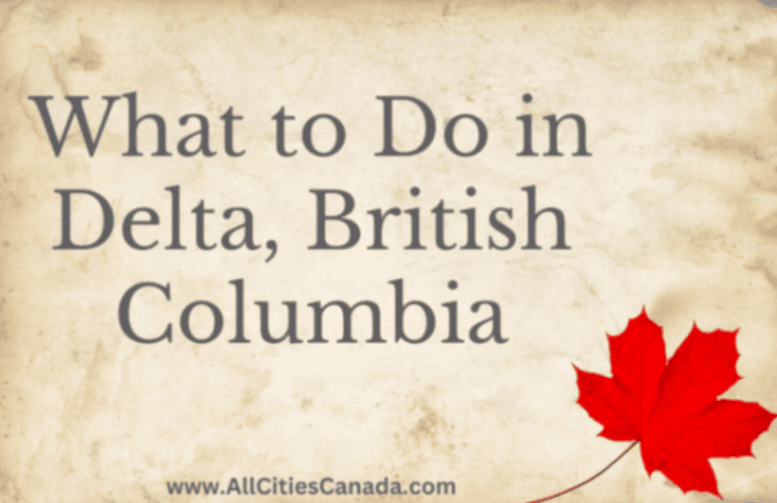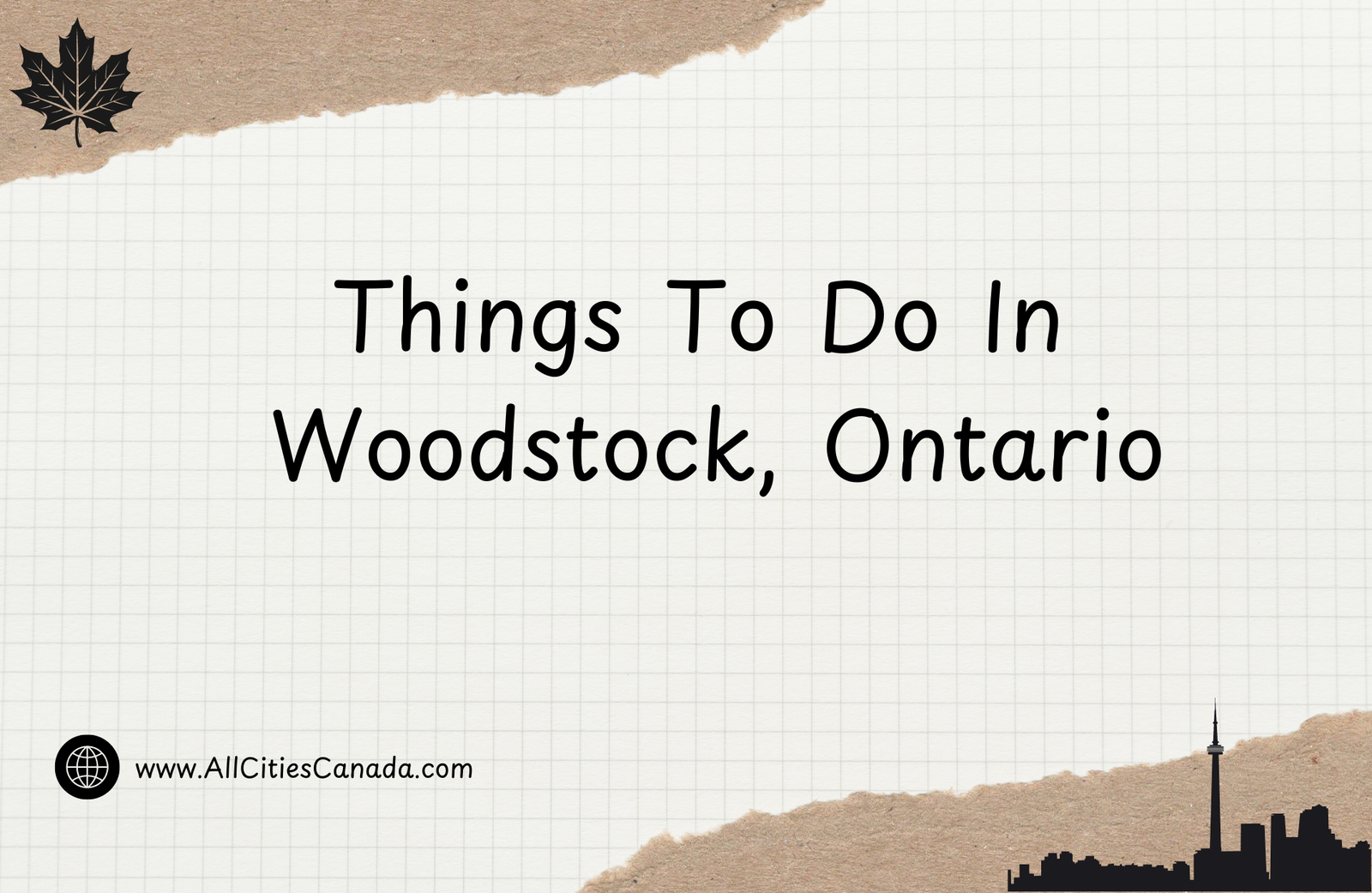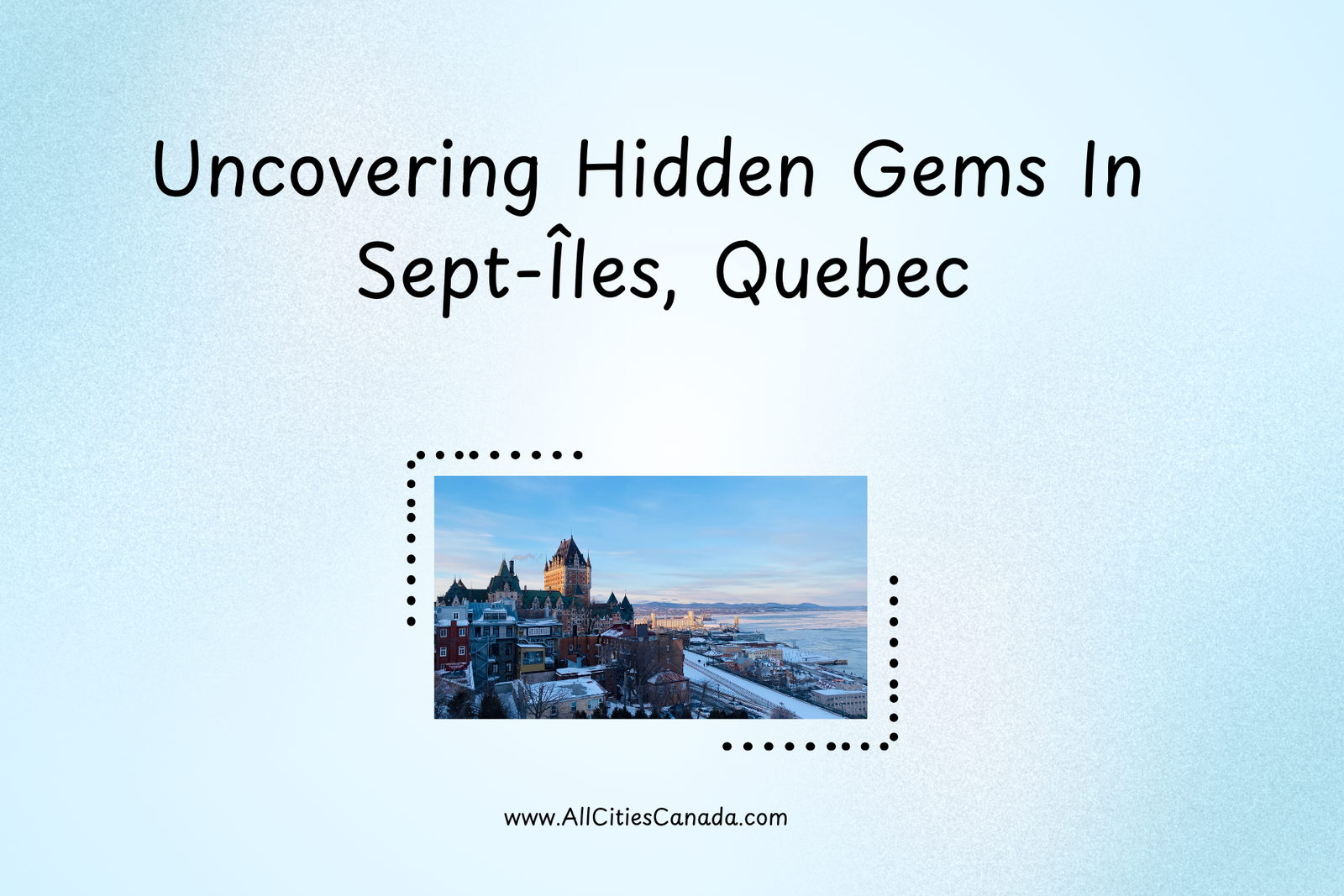
What to Do in Delta, British Columbia
Delta is a city in the Lower Mainland of British Columbia, Canada. It is 27 km south of Vancouver and 22 km north of the Canada–US border. It is the largest municipality in the Metro Vancouver Regional District, covering an area of 364 km.
Delta is bordered by the Fraser River to the north, the Strait of Georgia to the west, and Boundary Bay to the south. Delta's population was 108,455 as of 2021.
It is known for its relatively dry and sunny climate compared to other parts of Metro Vancouver, with cooler summers and milder winters.
The city is home to a diverse population, with about 45% visible minorities, including significant South Asian, Chinese, and Filipino communities.
Delta's economy largely depends on agriculture, manufacturing, transportation, retail, and film production. The city is home to some of the most important agricultural lands in British Columbia, with over 50% of its land dedicated to farming.
Major employers include Amazon, GCT Global Container Terminals, and various agricultural and manufacturing companies.
Delta comprises three distinct communities: Ladner, Tsawwassen, and North Delta. Ladner is a historic fishing and farming village, while Tsawwassen is known for its wealthy residents and as a filming location.
North Delta is a suburban area and the most populous of the three communities. The city offers a range of amenities, including a hospital, airport, museum, libraries, sports facilities, and a network of parks and trails. Delta is well-connected by road, with four major highways passing through the city.
History of Delta, British Columbia, Canada
Delta, British Columbia, Canada’s history before European settlement. The Tsawwassen First Nation of the Coast Salish originally inhabited the area. European exploration began in 1791 when Spanish explorer Lieutenant Francisco de Eliza mistakenly identified the region as an island and named it "Isla de Cepeda."
The first European settler in Delta was James Kennedy in 1860, followed by Thomas and William Ladner, who began farming in 1868. The community quickly grew through farming and fishing activities.
Delta's isolation ended in the late 1950s and early 1960s with the completion of key infrastructure, such as the George Massey Tunnel, Tsawwassen Ferry Terminal, and the rerouting of Highway 99.
These developments led to a significant % population growth of 400% over the next two decades. In 1986, the Alex Fraser Bridge further connected Delta to neighbouring areas, contributing to its continued growth.
On September 22, 2017, the Government of British Columbia changed the name and classification of the Corporation of Delta to the City of Delta.
Today, Delta is a diverse city with a population of 108,455 as of 2021, comprising visible minorities such as South Asian, Chinese, and Filipino Canadians.
The city comprises three distinct communities: Ladner, Tsawwassen, and North Delta, each offering unique characteristics and amenities.
Delta's economy is rooted in agriculture, manufacturing, transportation, and retail, with over 50% of its land dedicated to farming. The city's strategic location, bordered by the Fraser River, Strait of Georgia, and Boundary Bay, has contributed to its growth and development.
Geography of Delta, British Columbia, Canada
Delta is part of Greater Vancouver and is located in the Lower Mainland region of British Columbia, Canada. It is situated on the Fraser Lowland, south of the Fraser River's south arm.
Delta is bordered by the city of Richmond to the north, Surrey to the east, Boundary Bay and Point Roberts to the south, and the Strait of Georgia to the west.
Delta encompasses an area of 364 km2, making it the largest municipality in the Metro Vancouver Regional District.
Over 50% of Delta's land is dedicated to agriculture, with some of the most important agricultural land in British Columbia. The city is also home to Burns Bog, North America's largest raised peat bog.
Delta's geography includes several distinct communities: Ladner, Tsawwassen, and North Delta. Ladner is located in the northwest of the city, while Tsawwassen is in the southwest, near the Canada–US border.
North Delta is the most populous of the three communities and is located in the northeast part of the city. The city's coastline includes several beaches along the Strait of Georgia and Boundary Bay.
Delta is also home to several islands, including Annacis Island, Deas Island, and Westham Island. The Roberts Bank Superport, a major coal export facility, is located on a man-made island off the western shore of Delta.
Demographics of Delta, British Columbia, Canada
According to the 2021 Census, Delta has a population of 108,455, making it the 52nd-largest city in Canada. The city has a diverse population, with about 45% visible minorities, including significant South Asian (26.1%), Chinese, and Filipino communities.
Delta has a population density of 603.7 people per square kilometre. The median age is 44.1 years old, slightly higher than the provincial median of 42.3. The city has a relatively even gender ratio, with a male-to-female ratio 1:1.
Regarding age distribution, 15.1% of Delta's population is under 14 years old, 64.3% is between 15 and 64, and 20.5% is 65 years and over. The largest age group is 15-64, followed by 65 years and over.
Delta has a high percentage of married couples at 78%, compared to the provincial average of 71%. Families with children at home make up 49% of households.
The majority of Delta's population, 89.4%, speaks English only, which is on par with the provincial average. The most common places of birth for immigrants are India (3.5%), the Philippines (1.9%), China (1.8%), and the United Kingdom (4.9%).
Economy of Delta, British Columbia, Canada
Delta, British Columbia, Canada, has a diverse economy that focuses on agriculture, manufacturing, transportation, retail, and film production. The city's fertile soil makes it one of the most important agricultural areas in Metro Vancouver, and Ladner is a traditional farming and fishing village.
The Agricultural Land Reserve regulations protect Delta's land from being converted into suburban housing, preserving its agricultural heritage. Delta's major industries include agriculture, manufacturing, transportation, retail, and film production.
The city has significant employers such as Amazon, GCT Global Container Terminals Inc., TDK Logistics Inc., British Columbia Ferry Corp., and BC Fresh Vegetables Inc. These companies contribute to Delta's economic growth and provide employment opportunities for its residents.
Delta's strategic location, surrounded by water on three sides, has also influenced its economy. The city's proximity to the Fraser River, the Strait of Georgia, and Boundary Bay has facilitated industries like fishing, fish canning, food processing, and paper milling.
Additionally, the Roberts Bank Superport, built for bulk coal handling, plays a crucial role in Delta's economy, further enhancing its industrial sector.
Delta's economy is characterized by a blend of traditional agricultural practices, modern manufacturing facilities, efficient transportation networks, vibrant retail sectors, and a growing film industry, making it a dynamic and diverse economic hub within the Greater Vancouver area.
Education in Delta, British Columbia, Canada
Education in Delta, British Columbia, Canada, is overseen by the Delta School District, part of the larger network of school districts in British Columbia. The Delta School District administers publicly funded education for students until the end of grade 12 in the local areas of Ladner, Tsawwassen, and North Delta.
The district provides a comprehensive educational system that caters to the diverse population of Delta, offering a range of programs and services to support student learning and development.
Delta's education system benefits from the region's rich agricultural heritage. Its focus is on providing quality education while preserving the community's unique characteristics.
The Delta School District plays a crucial role in shaping the academic and extracurricular experiences of students in the area, contributing to the community's overall growth and success.
Transport System in Delta, British Columbia, Canada
The transportation system in Delta, British Columbia, Canada, is primarily served by a bus system provided by TransLink, the South Coast British Columbia Transportation Authority.
While Delta does not have a rapid transit system, the SkyTrain system in Surrey comes within 3 km of the city's borders, providing convenient access to rapid transit for residents in the area.
Delta is a major transportation hub for the Lower Mainland, with various highways connecting it to neighbouring cities and regions.
Highway 99 links Richmond to Delta via the George Massey Tunnel, while North Delta is linked to New Westminster and Richmond by Highway 91 and the Alex Fraser Bridge.
Additionally, Highway 17 provides a connection to the Tsawwassen B.C. ferry terminal, which offers car ferry connections to Vancouver Island and the Gulf Islands.
The city's transportation infrastructure includes River Road, Ladner Trunk Road, and 56th Street, which connect different parts of Delta and neighbouring communities.
Moreover, Boundary Bay Airport, located in Delta, is Canada's seventh busiest airport by aircraft movements. It primarily caters to private aircraft, commercial charters, and flying lessons.
Delta's transportation system, with its bus services, highway network, and proximity to key transportation hubs like the Tsawwassen ferry terminal and Boundary Bay Airport, plays a vital role in facilitating the movement of people and goods within the city and beyond.
Living in Delta, British Columbia, Canada
Living in Delta, British Columbia, Canada, offers a unique blend of rural charm, access to nature, and proximity to urban amenities.
Delta is the largest municipality in the Greater Vancouver Regional District, situated at the delta of the Fraser River, known for its rich soils and agricultural significance.
The city comprises three distinct communities: Ladner, Tsawwassen, and North Delta, each offering a different lifestyle and atmosphere.
Lifestyle and Environment:
- Delta is surrounded by water on three sides, providing residents with opportunities for outdoor activities, parks, bike and walking trails, islands, and wildlife.
- The city is ideal for nature lovers, with its parks, wildlife sanctuaries, and proximity to the Fraser River and Boundary Bay.
- Ladner, a farming and fishing village, preserves a 19th-century atmosphere, while Tsawwassen boasts beautiful houses and serves as a filming location for various productions.
Economic Opportunities:
- Delta's economy is anchored in agriculture, manufacturing, transportation, retail, and film production and offers diverse job opportunities.
- Major employers in Delta include Amazon, GCT Global Container Terminals Inc., and British Columbia Ferry Corp., which contribute to the city's economic growth.
Community and Amenities:
- Delta's communities offer a mix of residential areas, shopping centers, cultural attractions, and recreational facilities catering to diverse interests and lifestyles.
- The city is home to various amenities, such as the Delta Museum and Archives, Deas Island Regional Park, the George C. Reifel Bird Sanctuary, and Burns Bog, providing residents with opportunities for leisure and exploration.
Living in Delta, British Columbia, Canada, offers a balance between rural tranquillity, urban conveniences, and a strong sense of community, making it an attractive destination for those seeking a blend of nature, culture, and economic opportunities.
Healthcare in Delta, British Columbia, Canada
The Fraser Health Authority, one of the six health regions in British Columbia, provides healthcare in Delta, British Columbia, Canada. The authority is responsible for delivering healthcare services to the residents of Delta and surrounding areas.
Healthcare Facilities:
- Delta Hospital: Located in Ladner, Delta Hospital is a community hospital that provides various healthcare services, including emergency care, surgical services, and maternity care.
- Community Health Centres: Fraser Health operates several community health centres in Delta, offering services such as primary care, public health, and home health.
- Long-Term Care Facilities: Delta has several long-term care facilities that provide residential care and support services for seniors and individuals with complex care needs.
Healthcare Services:
- Emergency Medical Services (EMS): Delta has a comprehensive EMS system, with paramedics and ambulances available 24/7 to respond to medical emergencies.
- Mental Health and Addiction Services: Fraser Health offers mental health and addiction services in Delta, including counselling, treatment programs, and support groups.
- Public Health Services: The health authority provides public health services in Delta, including immunization programs, disease prevention, and health promotion.
Access to Healthcare:
- Delta residents have access to various healthcare services through the Fraser Health Authority, from primary care to specialized care.
- The city's proximity to Vancouver and other major healthcare centers in the Lower Mainland ensures that residents have access to specialized care and tertiary services when needed.
A comprehensive network of healthcare facilities and services provides healthcare in Delta, British Columbia, Canada, ensuring that residents have access to quality care when needed.
Tourist places in Delta, British Columbia, Canada
Some of the top tourist places to explore in Delta, British Columbia, Canada, include:
- Burns Bog: Known as the largest raised peat bog in North America, Burns Bog offers a unique natural environment for visitors to explore and appreciate nature.
- George C. Reifel Migratory Bird Sanctuary: This sanctuary is a popular destination for birdwatching and provides a habitat for various migratory bird species, making it a must-visit for bird enthusiasts.
- Deas Island Regional Park: This park offers scenic trails, picnic areas, and opportunities for outdoor activities like hiking and biking, providing a peaceful retreat for nature lovers.
- South Arm Marshes Wildlife Management Area: A designated wildlife management area, this site is ideal for birdwatching and observing local wildlife in their natural habitat.
- Boundary Bay Regional Park: Located along Boundary Bay, this park offers stunning views, walking trails, and opportunities for birdwatching and beach activities, making it a great spot for outdoor enthusiasts.
- North Delta Watershed Park: A serene park with walking trails and natural beauty, perfect for a peaceful stroll or a leisurely hike in a tranquil setting.
- Ladner Harbour Park: Situated in Ladner, this park provides a picturesque waterfront setting, ideal for relaxing walks, picnics, and enjoying views of the river.
- Millennium Trail: A scenic trail that offers a leisurely walk or bike ride through natural surroundings, providing a peaceful escape from the city.
- Wellington Point Park: A charming park with waterfront views, green spaces, and recreational amenities, perfect for picnics, family outings, and enjoying the outdoors.
These attractions in Delta, British Columbia, offer tourists a diverse range of experiences, from birdwatching and nature exploration to leisurely walks, picnics, and outdoor activities in beautiful natural settings.
Local Food of Delta, British Columbia, Canada
Some of the iconic local foods of Delta, British Columbia, Canada include:
- Okanagan Fruit: Known for its fresh and flavorful fruits, the Okanagan region in British Columbia produces a variety of fruits like apples, cherries, peaches, and more, reflecting the region's agricultural richness.
- Wild Pacific Salmon: British Columbia is famous for its wild Pacific salmon, a staple in the local cuisine and a symbol of the region's connection to the sea and its abundant seafood offerings.
- Doukhobor Cuisine: The Doukhobors, a Russian ethnic group that settled in British Columbia, have influenced the local cuisine with dishes like borscht, perogies, and other hearty and flavorful traditional foods.
- Stilton Cheese Cake: A unique dessert that combines the rich flavours of Stilton cheese with a sweet cake base, showcasing the fusion of flavours and culinary creativity in the region.
- BC Wine: British Columbia is renowned for its wine production, with vineyards in the region producing a variety of high-quality wines, including reds, whites, and ice wines, reflecting the region's growing wine industry.
- Cold Alder Smoked Salmon: A local delicacy essential for many types of sushi, showcasing the region's connection to seafood and traditional smoking techniques that enhance the flavour of the salmon.
- Himalayan Blackberry Jam: Made from the abundant Himalayan blackberries found in the region, this jam reflects the local bounty of fresh fruits and the tradition of preserving seasonal produce.
These iconic foods of Delta, British Columbia highlight the region's diverse culinary heritage, from fresh fruits and seafood to traditional dishes influenced by different cultural groups that have shaped the local cuisine.
You can also check the information regarding Victoria, British Columbia



